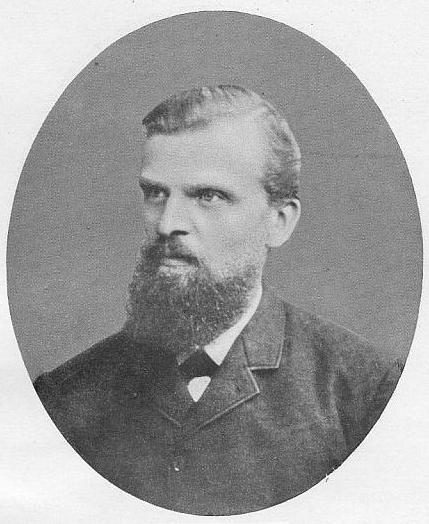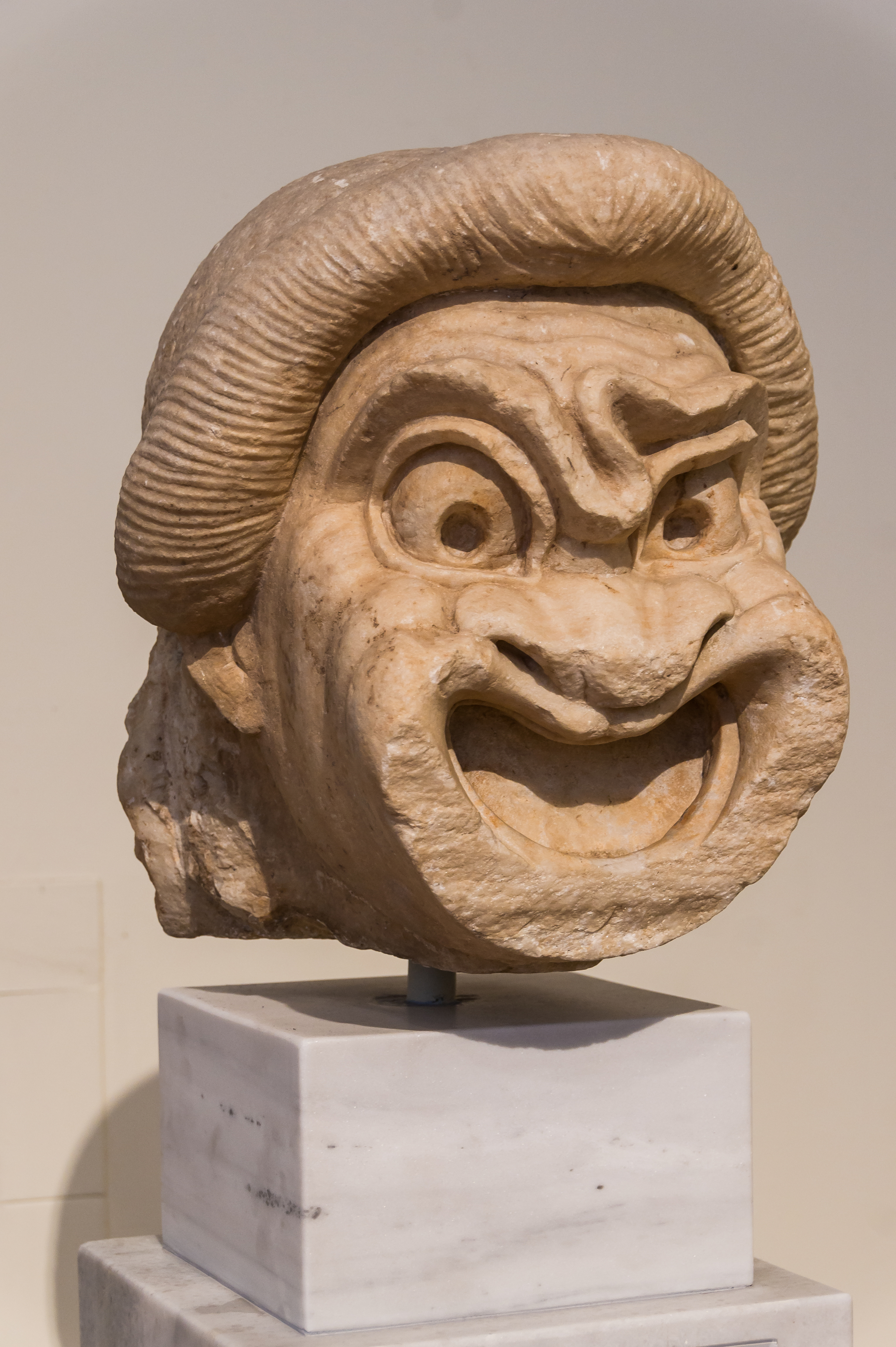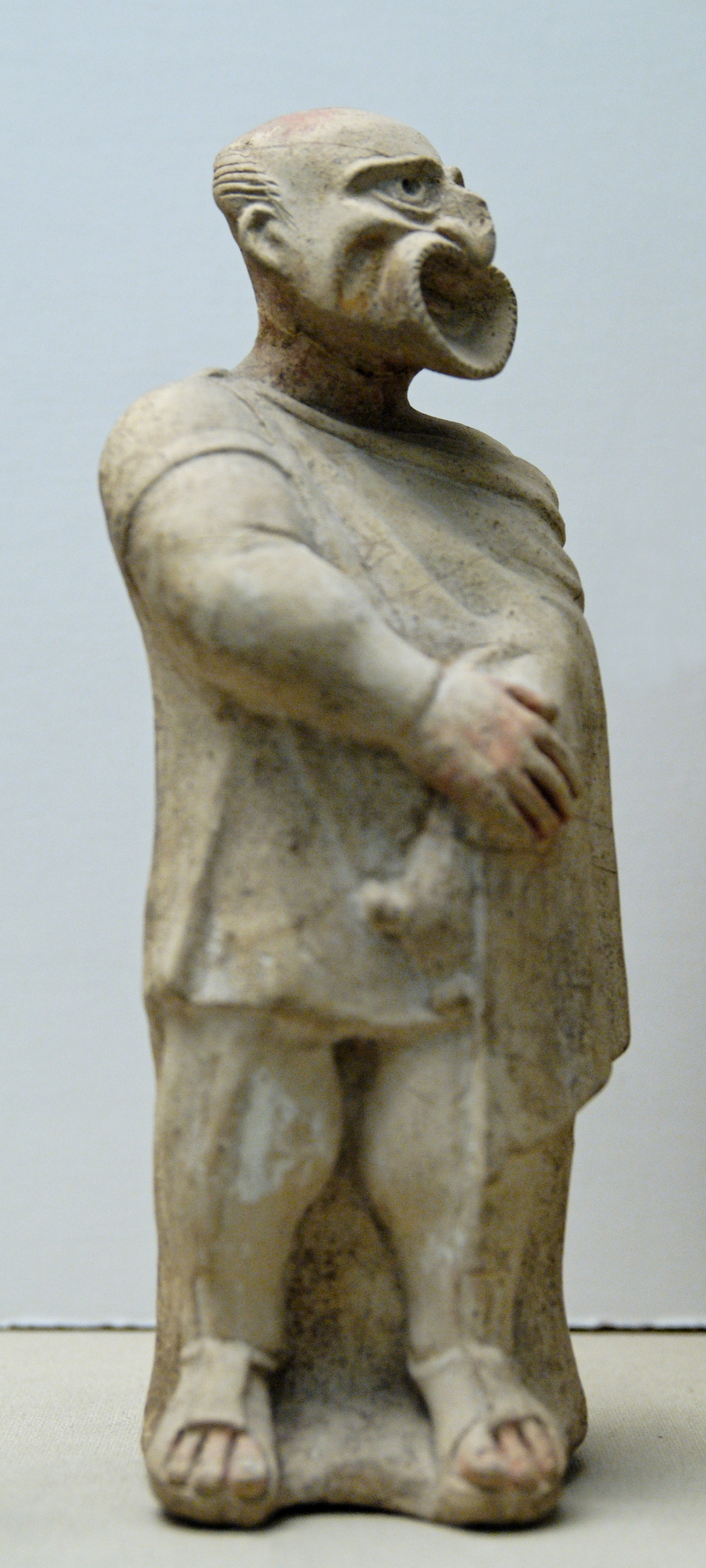|
Platonius
Platonius (, ''Platonios'') is the author of two writings on Greek comedy, which have been preserved in excerpts: ''On the Characteristics of Comedies'' (Περὶ διαφορᾶς κωμῳδιῶν) and ''On the Characteristics of Styles'' (Περὶ διαφορᾶς χαρακτήρων), which today form part of the collection ''Prolegomena de comoedia''. The time of his life is unknown; Georg Kaibel has speculated that Platonius lived in the 9th or 10th century. In his writings, Platonius talks about the differences between the old, middle and new comedy. Among other things, he claims that the old Attic comedy gave way to the middle one due to the suppression of political freedoms in Athens in the 4th century BC, but he does not name any poet of the middle comedy.Simon Hornblower & Antony Spawforth, ''The Oxford Classical Dictionary The ''Oxford Classical Dictionary'' (''OCD'') is generally considered "the best one-volume dictionary on antiquity," an encyclopædic work i ... [...More Info...] [...Related Items...] OR: [Wikipedia] [Google] [Baidu] |
Prolegomena De Comoedia
''Prolegomena de comoedia'' () is a modern collective name for several short ancient Greek and Byzantine writings in Greek that are mostly found in the manuscripts of Aristophanes' comedies or taken as excerpts from other texts. These writings are important for deepening the knowledge about the development of Greek comedy. In Dindorf's edition, the texts are given in the usual order: # Platonius, ''On the feature of comedy'' (). # Platonius, ''On the feature of styles'' () # Anonymous, ''On comedy'' (). This short essay is often cited because it gives a historical view of the origins of Greek comedy, thus supplementing the scanty information given by Aristotle in his ''Poetics'', as well as a concise overview of the historical development of comedy from Epicharmus and Magnetes to Diphilus. This is the most frequently quoted work from the ''Prolegomena de comoedia'' and, unless otherwise stated, this is the essay referred to when the work ''On Comedy'' () is cited in the literat ... [...More Info...] [...Related Items...] OR: [Wikipedia] [Google] [Baidu] |
Greek Comedy
Ancient Greek comedy () was one of the final three principal dramatic forms in the theatre of classical Greece; the others being tragedy and the satyr play. Greek comedy was distinguished from tragedy by its happy endings and use of comically exaggerated character archetypes, the latter feature being the origin of the modern concept of the comedy. Athenian comedy is conventionally divided into three periods; Old Comedy survives today largely in the form of the eleven extant plays of Aristophanes; Middle Comedy is largely lost and preserved only in relatively short fragments by authors such as Athenaeus of Naucratis; New Comedy is known primarily from the substantial papyrus fragments of Menander. A burlesque dramatic form that blended tragic and comic elements, known as phlyax play or hilarotragedy, developed in the Greek colonies of Magna Graecia by the late 4th century BC. The philosopher Aristotle wrote in his '' Poetics'' (c. 335 BC) that comedy is a representation of ... [...More Info...] [...Related Items...] OR: [Wikipedia] [Google] [Baidu] |
Georg Kaibel
Georg Kaibel (30 October 1849 – 12 October 1901) was a German classical philologist born in Lübeck. He was a leading authority of Greek epigraphy and epigrammatics. Biography Kaibel studied classical philology at the universities of Göttingen and Bonn. At Bonn he was a pupil of Hermann Usener and Franz Bücheler. In 1872–74 he was a member of the German Archaeological Institute in Rome, where he became a close associate of Theodor Mommsen and Ulrich von Wilamowitz-Moellendorff. Afterwards, he taught classes in Elberfeld and at the ''Askanische Oberschule'' in Berlin. In 1879 he became an associate professor of classical philology at the University of Breslau, followed by professorships at Rostock (1882), Greifswald (1883) and Strasbourg (1886). In 1897 he returned to Göttingen, where he was elected a full member of the Göttingen Academy of Sciences. Kaibel published several editions of works from the Second Sophistic era, as well as highly regarded editions of Sophocl ... [...More Info...] [...Related Items...] OR: [Wikipedia] [Google] [Baidu] |
Old Comedy
Old Comedy is the first period of the ancient Greek comedy, according to the canonical division by the Alexandrian grammarians.Mastromarco (1994) p.12 The most important Old Comic playwright is Aristophanes – whose works, with their daring political commentary and abundance of sexual innuendo, ''de facto'' define the genre. The only extant plays of Old Comedy are credited to Aristophanes. There are only fragments and 'testimonia' of all other Old Comedy playwrights and plays. Origins and history The word "comedy" (, ''kōmōidía'') derives from the words for 'revel' and 'song' ( κῶμος, ''kōmos'', and ᾠδή, ''ōidē'') and according to Aristotle comic drama actually developed from song. The first official comedy at the City Dionysia was not staged until 487/6 BCE, by which time tragedy had already been long established there. The first comedy at the Lenaia was staged later still, only about 20 years before the performance there of ''The Acharnians'', the first of A ... [...More Info...] [...Related Items...] OR: [Wikipedia] [Google] [Baidu] |
Middle Comedy
Ancient Greek comedy () was one of the final three principal dramatic forms in the theatre of classical Greece; the others being tragedy and the satyr play The satyr play is a form of Attic theatre performance related to both comedy and tragedy. It preserves theatrical elements of dialogue, actors speaking verse, a chorus that dances and sings, masks and costumes. Its relationship to tragedy is st .... Greek comedy was distinguished from tragedy by its happy endings and use of comically exaggerated character archetypes, the latter feature being the origin of the modern concept of the comedy. Classical Athens, Athenian comedy is conventionally divided into three periods; Old Comedy survives today largely in the form of the eleven extant plays of Aristophanes; Middle Comedy is largely lost and preserved only in relatively short fragments by authors such as Athenaeus of Naucratis; New Comedy is known primarily from the substantial papyrus fragments of Menander. A burlesque dramat ... [...More Info...] [...Related Items...] OR: [Wikipedia] [Google] [Baidu] |
New Comedy
Ancient Greek comedy () was one of the final three principal dramatic forms in the theatre of classical Greece; the others being tragedy and the satyr play. Greek comedy was distinguished from tragedy by its happy endings and use of comically exaggerated character archetypes, the latter feature being the origin of the modern concept of the comedy. Athenian comedy is conventionally divided into three periods; Old Comedy survives today largely in the form of the eleven extant plays of Aristophanes; Middle Comedy is largely lost and preserved only in relatively short fragments by authors such as Athenaeus of Naucratis; New Comedy is known primarily from the substantial papyrus fragments of Menander. A burlesque dramatic form that blended tragic and comic elements, known as phlyax play or hilarotragedy, developed in the Greek colonies of Magna Graecia by the late 4th century BC. The philosopher Aristotle wrote in his '' Poetics'' (c. 335 BC) that comedy is a representation ... [...More Info...] [...Related Items...] OR: [Wikipedia] [Google] [Baidu] |
Classical Athens
The city of Athens (, ''Athênai'' ; Modern Greek: Αθήναι, ''Athine'' ) during the classical period of ancient Greece (480–323 BC) was the major urban centre of the notable '' polis'' ( city-state) of the same name, located in Attica, Greece, leading the Delian League in the Peloponnesian War against Sparta and the Peloponnesian League. Athenian democracy was established in 508 BC under Cleisthenes following the tyranny of Isagoras. This system remained remarkably stable, and with a few brief interruptions, it remained in place for 180 years, until 322 BC (aftermath of Lamian War). The peak of Athenian hegemony was achieved in the 440s to 430s BC, known as the Age of Pericles. In the classical period, Athens was a centre for the arts, learning, and philosophy, the home of Plato's Academy and Aristotle's Lyceum, Athens was also the birthplace of Socrates, Plato, Pericles, Aristophanes, Sophocles, and many other prominent philosophers, writers, and politici ... [...More Info...] [...Related Items...] OR: [Wikipedia] [Google] [Baidu] |
Simon Hornblower
Simon Hornblower, FBA (born 29 May 1949) is an English classicist and academic. He was Professor of Classics and Ancient History in the University of Oxford and, before retiring, was most recently a senior research fellow at All Souls College, Oxford. Biography Born in 1949, he was educated at Eton College, where he was a King's Scholar, before being awarded a scholarship to Jesus College, Cambridge, where he took a first class in Part I of the Classical Tripos in 1969, and was taught for a time by Moses Finley, Moses (later Sir Moses) Finley. He then moved to Balliol College, Oxford, where he took first-class honours in ''Literae Humaniores'' in 1971 (Bachelor of Arts, BA and hence subsequently Master of Arts (Oxbridge), MA) and a Doctor of Philosophy, DPhil in 1978 with a thesis entitled ''Mausolus, Maussollos of Karia''. In 1971, he was elected to a Prize Fellowship of All Souls College, Oxford, which he held until 1977. From 1978 until 1997, he was university lecturer in anc ... [...More Info...] [...Related Items...] OR: [Wikipedia] [Google] [Baidu] |
The Oxford Classical Dictionary
The ''Oxford Classical Dictionary'' (''OCD'') is generally considered "the best one-volume dictionary on antiquity," an encyclopædic work in English consisting of articles relating to classical antiquity and its civilizations. It was first published in 1949 (''OCD''1 or ''OCD''), edited by Max Cary with the assistance of H. J. Rose, H. P. Harvey, and Alexander Souter. A second edition followed in 1970 (''OCD''2), edited by Nicholas G. L. Hammond and H. H. Scullard, and a third edition in 1996 (''OCD''3), edited by Simon Hornblower and Antony Spawforth. A revised third edition was released in 2003, which is nearly identical to the previous third edition. A fourth edition was published in 2012 (''OCD''4), edited by Simon Hornblower, Antony Spawforth, and Esther Eidinow. In 2016, a fully digital edition launched online, edited by Sander Goldberg (2013–2017) and Tim Whitmarsh (2018–present). Continuously updated on a monthly basis, this edition incorporates all 6,300 ent ... [...More Info...] [...Related Items...] OR: [Wikipedia] [Google] [Baidu] |





